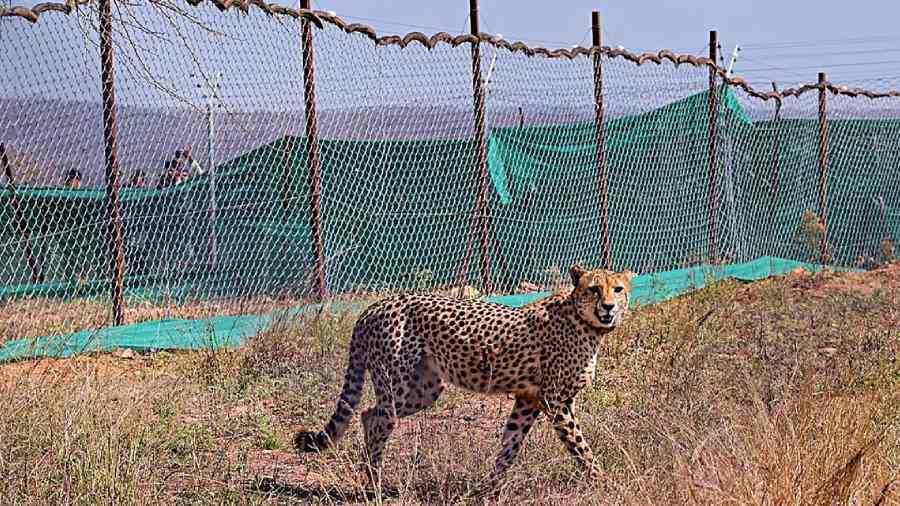Initial post-mortem study results have indicated that the South African cheetah that died in Kuno National Park, Madhya Pradesh, on Monday had been “most likely” exposed to a bacterial toxin, a wildlife scientist familiar with the results said.
The toxin can cause an illness called botulism that affects the nerves and can cause paralysis and death. The cheetah named Uday had appeared well hours before its death, but some scientists have speculated whether long periods behind fences could have been detrimental to its health.
The initial post-mortem results show heart damage, lung congestion and oedema which is “exactly what we would find in an animal that dies of botulism,” the scientist said. “The lack of any other identified causes and symptoms the cheetah had before death are also strongly suggestive of botulism.”
The toxin is produced by the Clostridium botulinum bacteria that is involved in the putrefaction of dead animals. If an animal died and fell into a stagnant water pool, the toxin would be released in the water. And if the cheetah drank from the pool, it would have ingested the toxin.
“Under these circumstances, the cheetah would have developed symptoms very quickly as it appears to have happened,” the scientist said. “Wild carnivores are known to have got botulism from chewing old bones — the bacteria forms the toxin in the bone marrow.”
Further tests are underway to corroborate the initial results, the scientist said. But the evidence so far suggests that the death was a rare event and will not impact India’s cheetah introduction project that seeks to establish wild populations of cheetahs in protected areas.
Uday was the second cheetah to have died in Kuno after the death of Sasha, a Namibian cheetah, that had died on March 27 after weeks of battling kidney disease that some scientists say is a complication of long periods in captivity.
Another scientist said the project to introduce cheetahs had been anticipated to involve some deaths. “There were some expectations of losses even during the translocation itself, but our efforts kept that to zero,” the scientist said.
When many cheetahs are released into the wild, another cheetah specialist said, we could see more deaths, from cheetahs either attacked by leopards or injured by prey animals.
India had flown in eight cheetahs from Namibia in September last year and 12 more from South Africa in February this year. One of the Namibian cheetahs gave birth to four cubs last month. Despite the two deaths, India’s count of cheetahs has risen to 22.











